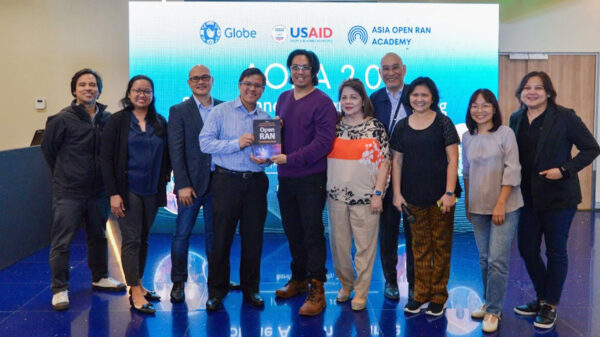“It’s my 30th birthday.” “We’re celebrating our 10th anniversary today.” “Call me on 12345678,” “My address is…” “I love Blackie, my dog”. These statements might seem harmless but hackers are constantly on the lookout for any information posted online which can help them answer security questions and gain access to passwords.
With a lot of people doing online transactions due to social distancing restrictions, unscrupulous persons also relentlessly attempt to steal passwords and other important information to commit fraud, access financial accounts, damage reputations or even destroy lives.
The situation becomes more alarming as 32% of Filipinos surveyed continue to reuse five or fewer passwords across all their accounts while 29% still write down their passwords, according to a study conducted by FICO, an analytics software company based in Silicon Valley.
“As a company which provides consumers with connectivity, we also want to keep them safe from malicious activities especially at this time when many are staying at home and are relying more than ever on apps and online services for various reasons. Passwords are the keys to our accounts, making it imperative to ensure that our passwords are well protected to ensure the safety of our accounts,” said Anton Bonifacio, Globe Chief Information Security Officer.
SplashData’s analysis of millions of passwords leaked on the internet showed that among the most common passwords in 2020 are the following: 123456, 123456789, qwerty, password, 1234567, 12345678, 12345 Iloveyou, 111111, 123123, Nothing, Secret, Password1, and Admin. To check if a password can be hacked in six seconds or in six trillion years, visit www.howsecureismypassword.net.
Thus, Globe continuously reminds its consumers to use different passwords for multiple accounts as well as turn their password into a passphrase. This passphrase must be a combination of uppercase, lowercase, symbols and numbers; does not contain personal information such as names, birthdays, and addresses; and has to be a weird phrase that can be easily remembered. Even better is to use a free password management software that generates strong random passwords and integrates to browsers or even the phone for ease of use.
As an added layer of protection, Globe recommends setting up two-factor verification on accounts that allows it. On top of the password, this requires a code that can be received via SMS, a phone call or a separate authentication app, in order to log in. However, app-based One-Time PIN generators must be the user’s first choice while SMS OTP should be avoided and be considered as a last resort.
When possible, Globe also pushes the use of new technologies like biometrics with fingerprint, retinal or facial scan for added security. In fact, FICO said 76% of those surveyed are willing to use fingerprint scan while 40% and 23% are amenable to facial and eye scan, respectively.
Aside from hacking, people also have to be wary of scammers who directly get in touch with their target victims through social media or mobile phones. According to Globe, there are those who pose as company personnel offering products, services, or assistance but with the intention to defraud consumers. Globe said it will never ask for passwords or OTPs and customers should never disclose this to anyone.
“The strongest of passwords is only as secure as the person that keeps it. Almost all account takeover, based on our experience, happens due to social engineering. So always be vigilant,” said Bonifacio.
For mobile-based scams, Globe encourages its customers to report mobile numbers responsible for these types of messages to https://www.globe.com.ph/stop-spam.html#gref.
While doing its best to protect the data of its customers, Globe stressed that the conscious involvement of the public is also important. Through its Digital Thumbprint Program and #MakeItSafePH campaign, Globe continues to promote proper online behavior and responsible internet usage among consumers to keep them safe from numerous threats present on the internet. To learn more about Globe Telecom, visit www.globe.com.ph.














































































































